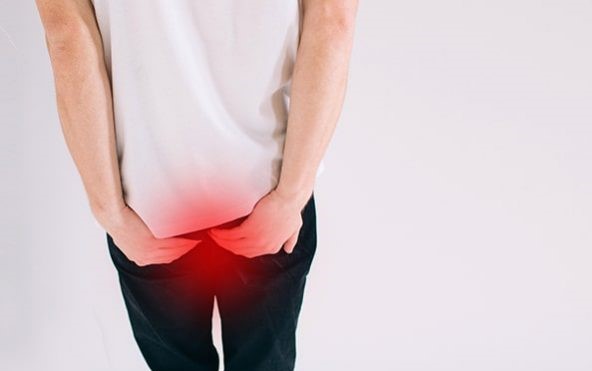This advertisement sounds irresistible: “Lose 5 kilograms in 10 days with a new scientifically proven formula!” Especially to people who are desperate to lose weight. However, a logical question arises: “Is such a thing even possible?” Is there really such a diet that can achieve a miracle? That is, to cancel the effect of long-term weight gain and remove unwanted kilograms like a “magic wand?”
Even if the answer is yes, the question remains open: “What consequences can such a diet have on your health?”
All of us would like to be handsome, slim, with perfect curves and proportions. However, all of us would also like to enjoy our favorite treats, without any fear of unwanted weight gain. Someone might say that we can’t have both. However, miracles are possible when we have clear guidelines.
If you have been trying to lose unwanted pounds with the help of fast diets for years, you must have noticed one common problem: The lost pounds always came back! Just when you hoped you had finally gotten rid of them, they kept coming back in an even bigger “volume”. It must have been a devastating experience for you, especially if it has been repeated for years.
The “yo-yo effect” is a daily occurrence in today’s world. Because the more a person is discouraged by his unsuccessful weight loss, the more he relies on another diet.
Huge sums of money are spent every year on diets and various other weight loss products, but the results are disappointing. For many, permanent weight control is much more difficult than defeating drugs, tobacco or alcohol.
Is there any possibility at all to break this vicious cycle? The good news is that it exists, but one usually chooses the wrong path…
Why is fast weight loss always the wrong option?
People are looking for a safe diet pill, but so far this one has been anything but safe. Some diet pills can permanently damage your health, and some have even proved fatal. Most people who lose weight believe they are losing fat. However, they mostly lose water, muscle and other vital tissues!
Many diets include diuretics (pills to eliminate fluid). Since the body consists of 70% water, such pills remove several kilograms of water relatively easily. It looks good on the scale, but only for a few days. After that, the body gradually restores the balance by replacing the water and there is no more weight loss.
Too much protein does essentially the same thing. The liver converts excess proteins into urea in the blood, which forces the kidneys to excrete water from the body. Some diets for rapid weight loss are based on the fact that consuming a large amount of protein in a very short time leads to spectacular weight loss. However, it is dangerous! Therefore, such diets should be supervised by a doctor and are limited to very short periods, usually around two weeks.
In both mentioned cases, the scale shows lower numbers, but most of the lost weight is returned in a very short time, when the body replaces the lost water.
Many other crash diets reduce daily calorie intake (1800-2500) to less than 500 calories per day. Some of these starvation diets can go as low as 300 calories a day. The body misreads this dramatic drop in calories as acute starvation, so in an effort to protect more important tissues, it actually starts digesting its own proteins (usually in the form of muscle).
Careful tests have shown that with these diets, weight loss can occur not only due to the loss of fat tissue, but also muscle tissue. So be careful. When e.g. you think you are losing 6 kg of fat, you can actually lose 2 kg of fat, half a kg of protein tissue (muscle) and 3.5 liters of water!
Why is a slow diet always a better solution than a fast diet?
If you feel you must continue to diet, try to get enough calories from protein and carbohydrates to prevent muscle tissue loss. For the average person, this means at least 200 calories of protein and at least 600 calories of carbohydrates per day.
Moderately overweight people usually lose half to a pound a week on a well-balanced diet. While severely obese people can lose a little more weight.
Slow, steady weight loss has many advantages over radical, crash diets:
it does not put the organism in a state of starvation;
there are less frequent periods of yielding and failure;
it is easier to cope with hunger;
you have a good chance of losing weight due to the loss of fat rather than water, muscle and other vital tissues;
perhaps the most important benefit of losing weight more slowly is that you have much more time to establish new and healthier eating habits so that the weight loss is permanent.
Are fast diets still a better solution than no diets at all?
Constantly losing and gaining weight is one of the most harmful services you can do to your body. The fact is that staying overweight would be less harmful to health than this yo-yo effect.
Repeated weight loss through crash diets, followed by weight regain, gradually depletes muscle tissue and creates fat. And since fat burns in muscle tissue, it will be more and more difficult for you to lose weight.
The psychological consequences are an even bigger problem. Experiencing failures and humiliations for years creates emotional scars that often remain for a lifetime. People who are seduced by the magic of rapid weight loss lose pounds at first, but in the end they almost always end up heavier than before.
That is why it is better to be without any diet than to constantly switch from one diet to another. Lose a few kilos now, and then gain them back. Research shows that this yo-yo effect gradually wears down important body tissues such as muscles and bones. In the end, the body becomes so weak that it becomes more and more sensitive to diseases and less able to excrete fat.
However, this does not diminish the fact that overweight people are exposed to greater health risks. They suffer from heart disease, high blood pressure, diabetes, gall bladder disease and cancer more often than people of normal weight. They die sooner.
This brings us to the main conclusion that obesity can be a serious and life-threatening condition! When choosing between fast and no diet, you can only choose the lesser of two evils. What is left for you in that case?
How to lose weight without the yo-yo effect and starvation?
Overweight people need to make a big change in thinking and behavior. The scenario that plays out for millions of people goes something like this: a few weeks of the latest miracle diet, a band-aid over the mouth, a series of injections or pills, a stitched stomach, a bypass, and the pounds come off. Celebration! New clothes.
But after a few days these people return to their previous eating habits and lifestyle. In a few weeks, the lost kilograms are returned, often with interest. Weight loss programs often fail because they try to solve long-term problems in the short term.
Don’t become a slave to the scale by checking immediate results daily for problems that have developed over the years. Start a health program and be patient. Persistence pays off. The illusion will fade, but the reward will be solid and lasting.
Suspicious are diets that promise quick weight loss. They assure you that you will lose weight, but they often do not have lasting results. Overweight people can usually lose one to one pound a week if they follow a balanced program of healthy eating and exercise. It is a wise way to reduce and maintain weight. It may not make you lose weight before the summer, but it’s a reasonable and healthy approach to long-term weight loss.


